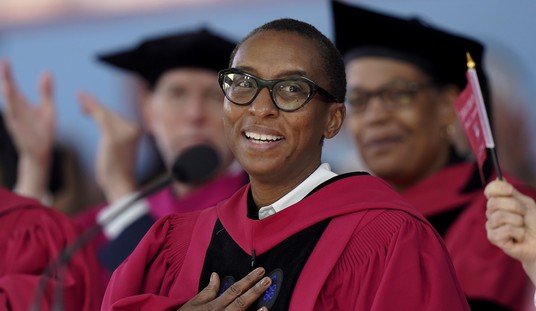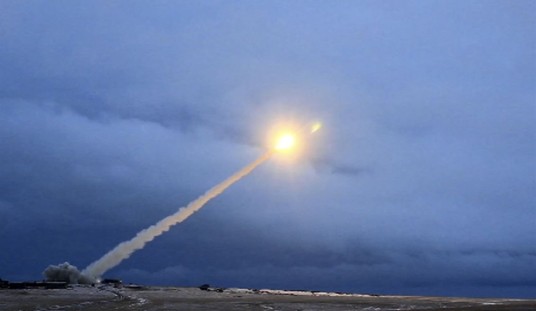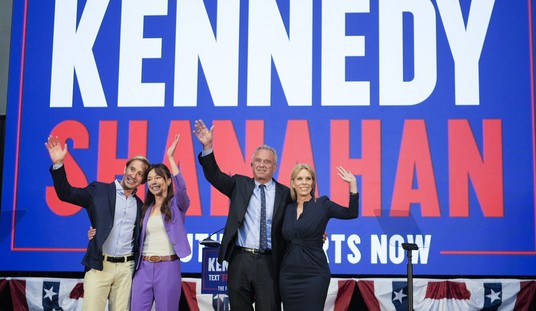Democratic presidential candidate Hillary Clinton simultaneously comforted a young girl concerned about bullying and subtly hit Donald Trump during a town hall in Keota, Iowa, Tuesday.
At the end of the event, fifth-grader Hannah Tandy asked Clinton what she would do about bullying…
“I really do think we need more love and kindness in our country,” Clinton told Tandy. “That’s why it’s important to stand up to bullies wherever we are, and why we shouldn’t let anybody bully his way into the presidency, because that is not who we are as Americans.”
Donald Trump’s public mocking of Hillary Clinton has renewed criticisms of crass, sexist comments by the Republican presidential front-runner…
[B]ehind the scenes, Team Clinton saw the remarks at a Monday rally as a new low, and some allies predicted they would lead to his demise.
“We are watching the Donald melt down,” predicted Ellen Tauscher, the former congresswoman who served as undersecretary for Arms Control and International Security Affairs under Clinton…
“It seems like he says whatever he wants to say and his fans like him more,” Jellison said. “No matter how crude, his fans seem to like it. In the wake of Trump’s latest remarks on Clinton, “his poll numbers will probably go up.”
Mrs. Clinton’s aides could barely believe their good fortune. Mr. Trump had just given them new fodder to galvanize women behind her candidacy — and they used it…
Behind the scenes, the Clinton campaign mobilized a wide network of female supporters to denounce Mr. Trump as “sexist,” as a practitioner of “pathetic, frat-boy politics,” and as more suited to running for “president of the fourth-grade football team.”…
While the other candidates for the Republican presidential nomination tread carefully to avoid antagonizing Mr. Trump’s numerous supporters, for Mrs. Clinton, hitting hard appears relatively risk-free.
It shows that she is unafraid of him, Democratic strategists said. And by focusing on Mr. Trump’s more extreme comments, Mrs. Clinton could excite the growing list of constituencies he has directly offended — as well as a broad range of voters who see Mr. Trump as a corrosive presence in the presidential campaign.
Trump’s attack recalls a series of unlikely political pivot points for the former first lady. One notable instance came in her first debate as a candidate for elective office when her Republican opponent for the U.S. Senate, Rick Lazio, infamously walked across a debate stage, wagged his finger and demanded she sign a campaign finance pledge. In the same debate, moderator Tim Russert elicited gasps from the audience when he asked Clinton a blunt question about her husband’s infidelity. As happened in 2008, when a Clinton beat back a surging Barack Obama in the Democratic presidential primary after a rare teary moment on the campaign trail, her moments of vulnerablity make often turn to her political advantage.
Steve McMahon, a Democratic strategist, called Trump’s attack “misogynistic” and predicted it will rally women to Clinton’s side.
“It reminds the women who love her so much of the kinds of things that professional and successful women have to go through every day. So it solidifies and strengthens her core female vote, which is fantastic for her,” McMahon said. “She’s no stranger to [these attacks]. And no one handles it more adroitly than Hillary Clinton does. We saw it in 2008, we saw it in 2000 when she ran against Rick Lazio, and we’re seeing it today. It’s a reminder that she’s at her best and strongest when she’s under attack.”
Donald Trump’s verbal attacks on women have done little to dent his meteoric rise, but a deeper look at his polling shows the threat of a gender gap ripping open if he becomes the GOP nominee…
Trump is clearly relying heavily in the primary race on less-educated men. According to unpublished crosstabs for Tuesday’s Quinnipiac poll, provided to POLITICO, not only is Trump’s highest score on the ballot test among men without a college degree — 33 percent — those Republicans are also most likely to have a favorable opinion of him.
Fully 74 percent of non-college men who identify as Republicans or Republican-leaning independents have a favorable impression of Trump, compared with 57 percent of male college graduates.
Those numbers drop off among women. The poll found that 50 percent of female college graduates have a favorable view of the real estate mogul. And there’s less of a difference across the education level — just 51 percent of female non-college graduates say they look upon Trump favorably.
https://twitter.com/realDonaldTrump/status/679506175239532545
https://twitter.com/realDonaldTrump/status/679538962948571137
https://twitter.com/realDonaldTrump/status/679668017505144833
Slang dictionaries only record “schlong” as a noun, not a verb, so is “getting schlonged” simply a peculiarity of Trump’s loose-lipped lexicon? Harvard University cognitive scientist Steven Pinker suggested as much in an interview with the Washington Post, surmising that “schlong” as a verb was a misappropriation of Yiddish: Trump may have “reached for what he thought was a Yinglish word for ‘beat’ and inadvertently coined an obscene one,” Pinker said.
While the expression is rare, it has in fact shown up in earlier political contexts, typically from New Yorkers like Trump. The Post notes that Neal Conan, host of NPR’s Talk of the Nation, said in a 2011 broadcast that the 1984 Democratic ticket of Walter Mondale and Geraldine Ferraro “went on to get schlonged at the polls.” And on Fox News in 2006, Dick Morris warned that President George W. Bush was “going to get schlonged” in the midterm elections.
Long before that, the phrase made an appearance in New York City collegiate politics. The Daily Mail uncovered a 1967 article in the student newspaper of the City College of New York in which Ellen Turkish, a candidate on the losing slate for student council, said, “We got schlonged.”
Based on all the evidence, what seems clear is that in a certain era (say 1945 to 1965) and in a certain region (Queens and adjoining Long Island) this was a commonly used phrased, most often used in a sports context, which meant getting clobbered or beaten. The available evidence also suggests that it was limited to this region. (The odd man out here is Frank Rich, who fits the age profile but grew up in Washington, DC. He’s been in the generational milieu in New York long enough, however, that he perhaps picked it up atmospherically as adult.) It even seems possible that the Yiddish derivation of this usage may even be in question. What seems most likely is that this was (as I speculated yesterday) a particular Queens/Long Island Yiddish-derived neologism that sprung up mid-century but also died out within a generation or so. But it’s still remembered by men who knew and used it at that time.
All this said, even if men of this age used it without a conscious sexual meaning, it’s hard to imagine it would be difficult to unpack the original sexual derivation – just as many of us today say “screwed” or “sucked.” But it’s just as clear that many men from that era did use it and didn’t think of it having a sexual context. One might also counter, aren’t these men in their 60s and 70s just more tone-deaf to sexually offensive phrases? That is definitely possible. Indeed, a generational component goes without saying. I will leave that analysis to others.
Moynihan said it all the time. Rockefeller too. "You know, Happy, they really schlonged me on this one." Really.
— Alex Burns (@alexburnsNYT) December 23, 2015
Regardless of the outcome next November, Trump’s success in raising the issue of political correctness creates uncertainty in the 2016 election.
How many Democratic and independent voters share Trump’s implicit racial antipathy to the Black Lives Matter movement? How many worry that the police have backed off law enforcement in response to the so-called Ferguson effect, with a resulting increase in crime? And how many are offended by the concessions of university administrators to demands for speech codes, trigger warnings, “safe spaces” and even resignations?
Is the number of Democrats and independents who feel strongly about such issues large enough to alter the course of the election?…
Trump has reframed core questions in ways that make them dangerous, both for the candidates and for the country as a whole.








Join the conversation as a VIP Member